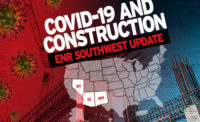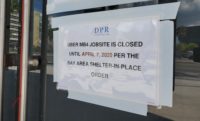There are some important contract considerations that parties can use to evaluate coronavirus-related project delays and closures, safety concerns and vendor and workforce unavailability. A force majeure clause in a construction contract sets forth the conditions under which one party is excused from performing. The conditions tend to have two predominant elements: that the condition was unforeseeable and that parties lacked control over the condition. A force majeure clause specifically identifies what events excuse a party from performance.
Some force majeure clauses, such as Section 8.3.1 of the AIA A201-2017, General Conditions of the Contract for Construction, will refer generally to “causes beyond the contractor’s control” and “other causes that the contractor asserts, and the architect determines, justify delay.” Others, such as 48 CFR 52.249-10, a Federal Acquisition Regulation (FAR) provision applicable to government contractors, may specifically mention “epidemics” and/or “quarantine restrictions.” Still others will reference acts of governmental bodies that affect the supply or availability of labor or materials.
Contractors that intend to rely on a force majeure clause in a construction contract to excuse timely performance as a result of COVID-19 must pay close attention to the notice provisions. Failure to notify a party of a force majeure event within the stated time frame may waive that party’s right to any extension to which they might otherwise be entitled.
Moreover, some force majeure clauses require contractors to demonstrate efforts to minimize delays by reasonable means, which in the case of stalled imports of materials from overseas may include finding domestic sources. In addition to seeking an extension for performance in the wake of COVID-19, contractors may try to recover compensation to offset the impacts. However, many owner-friendly contracts provide that in the event of force majeure, the contractor is entitled to an extension of time, but not to compensation as a result of the event.
For instance, owner-developers are often encouraged to include in their construction contracts language making clear that force majeure events and other contemplated delays cannot give rise to claims for damages or other compensation that increases the contract amount, although most sophisticated general contractors and construction managers will negotiate this point.
Despite the existence of a no-damage-for-delay clause in a construction contract, courts will allow a contractor to recover delay damages if it can prove the delays fall within one of four exceptions:
- Delays caused by the contractee’s bad faith or willful, malicious or grossly negligent conduct;
- Uncontemplated delays;
- Delays so unreasonable that they constitute an intentional abandonment of the contract by the contractee; and
- Delays resulting from the contractee’s breach of a fundamental obligation of the contract.





Post a comment to this article
Report Abusive Comment